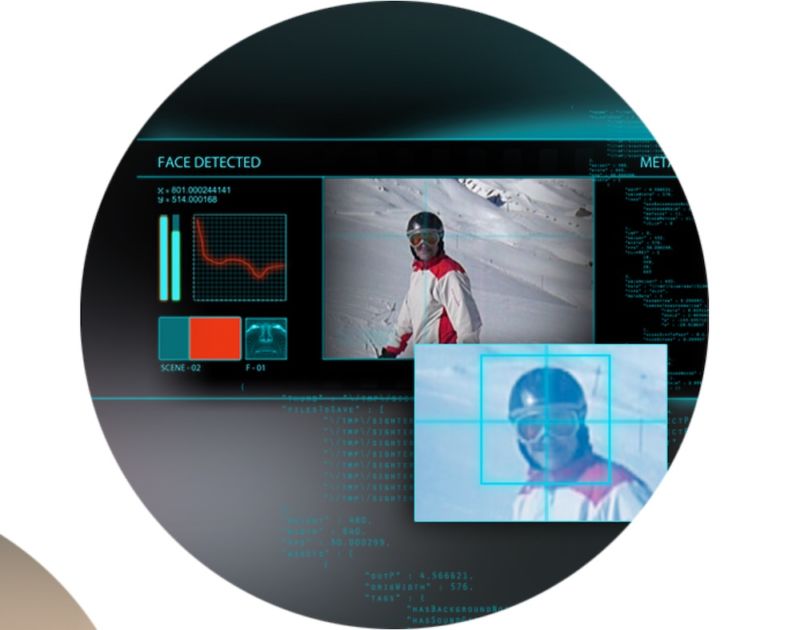Ars Technica: Vimeo is collecting and storing thousands of people's facial biometrics without their permission or knowledge, a recently filed lawsuit alleges.
The "highly detailed geometric" facial maps, according to a complaint, are being collected and stored in violation of the Illinois Biometric Information Privacy ACT, or BIPA, according to a complaint filed last week in Illinois state court.

5 comments:
The debate on privacy and data collection is a very controversial one. Many people argue that our privacy is being violated when our data is collected through a software and that we should be able to live private lives. Others argue that it is important for data to be collected in order to ensure safety across these media platforms. It isn’t clear whether Vimeo is responsibly using this biometric data, or for what reason they are collecting it. It also does not specify whether this practice was outlined in the terms and conditions of using the site. Personally, I believe in collecting data in order to protect all citizens, however it is important for Vimeo to explicitly state that they are collecting this data and that it will be used in a responsible manner. Users should have to accept a clear set of terms and conditions before uploading any media to the site so that they are informed of the company’s practices and ways of operating. This is crucial to avoiding any legal issues like this one in the future.
Currently, I am taking an interp class in which we are studying the power of information and the abuse of the collection of that information. This example from Vimeo is a perfect example of the fact that the way in which we track and monitor people and their information is changing drastically due to the internet and the new technologies surrounding it. Recently regarding the scandal with google and facebook, people are becoming more and more concerned about their information online. The fact that Vimeo is also under fire for facial recognition techniques proves that our technology is incredibly advanced and you and never be too careful with your information. I also think that the fact that Vimeo faced this scandal brings into question the way that we share information and media publicly and freely. This incident could potentially make the general public more and more hesitant to use platforms like this.
Monitoring people is always something we don't want. When it comes up in discussions, it can be beneficial as it can track down those who need to be stopped, but for the larger population, it doesn't hold any purpose other than always being under surveillance. As someone who uses Vimeo, I feel very attacked to know that this service has been monitoring me and the others who use this website. Using the website to look up videos or videos friends have made, I had no idea that they are monitoring my usage of the site. When this happens, and I feel like this company never asked if they could monitor me, I just feel violated. There is not really a reason why Vimeo should be collecting what I am doing on their website other than for their own profit. When it comes to that, I am sure multiple people would be willing to pay to confidently not be monitored. I am not sure if I would pay but I would at least like to be asked or let known that I am being monitored.
The topic of privacy, security, and the role large technology companies hold is a very interesting topic to explore. Commonly, there is a disconnect between what a company does and what a user expects when it comes to using free services. It’s not really “free,” you are paying in another form. Usually, this is listed in the terms of service that nobody reads. However, this does not appear to be the case when it comes to this issue involving the video sharing site, Vimeo. The article is unclear as to what is done with the facial information that it creates a template of. On the surface, it appears similar to something that Google and Apple do in their photos app, which scans a persons face and uses it to bring up other results of that persons face. It will be very interesting to see if Vimeo releases a statement regarding their intent with collecting this information without being upfront with their users about it.
I think it is completely inappropriate for Vimeo to be storing people’s information, including facial biometrics. There is so much important information contained from this data that it seems unreasonable that a video streaming service would need it. I would hope that Vimeo does a good job of explaining why they gathered that information in the first place and how they plan on using that data going forward. I don’t think there is much legitimate ground to stand on in the support of a video streaming service needing that much intimidate information on people. This is something I would hope gets brought to a broader platform such as legislation in terms of the rights and responsibilities tech companies have to users when gathering data and creating digital spaces and permanent content and connections. I think it is an important distinction to create of what data is necessary for technical functions of an application and what is being gathered for the commercialization of the product.
Post a Comment